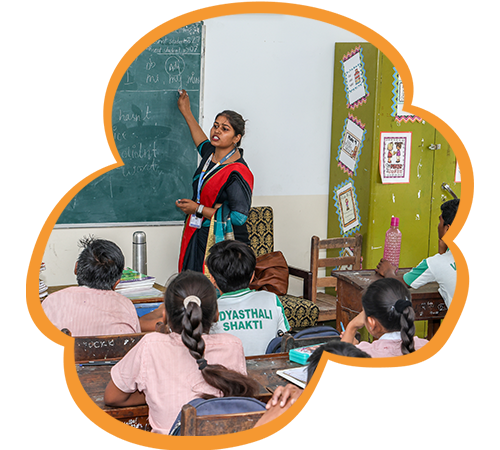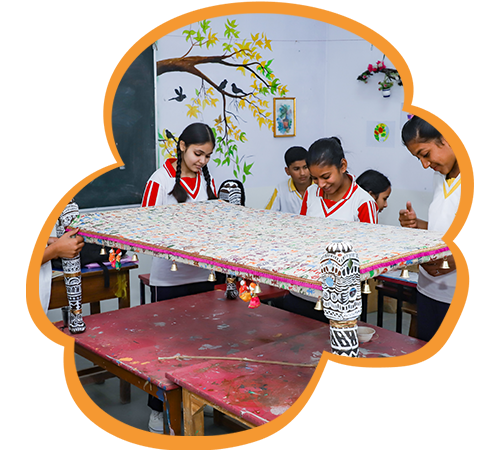
Our Pedagogy
The Beginning
The pedagogy in Vidyasthali was initially much more traditional than the one practiced at Study Hall for several reasons. Firstly, parents needed convincing that their children were not simply ‘playing’ in school. Their idea of school was very conventional and they refused to send their children to a school where there were so many activities. Unless children were in the class with their noses buried in their textbooks, notebooks filled with writing copied diligently from the board, frequent tests with marks so that they could see that their children were progressing, the parents did not think their children were receiving a high quality education.








Understanding and Addressing Our Students’ and Parents’ Concerns
So we moved slowly, changing one thing at a time, gradually building in several activities. Additionally, we addressed the social issues of child marriage, gender, caste, and poverty through critical dialogues in an effort to sensitize both boys and girls to these issues. We hoped they would learn to think and question the prevailing customs rather than taking things at face value, and work at fighting these social evils by taking this knowledge back to their families and communities, thereby widening the impact.
For example, we asked all our older children (grade 6 onwards) to survey their villages and find out how many girls were out of school, had never been schooled or had dropped out. They came back with the names of over 150 girls. We asked them to then undertake an enrolment drive to persuade and facilitate the enrolment of girls to local schools. Vidyasthali offered to enroll girls who were married or for some reason could not leave their homes in the NIOS program, with weekly contact classes at Vidyasthali.
This was a successful program and is ongoing. Students engage in such local development activities routinely.







